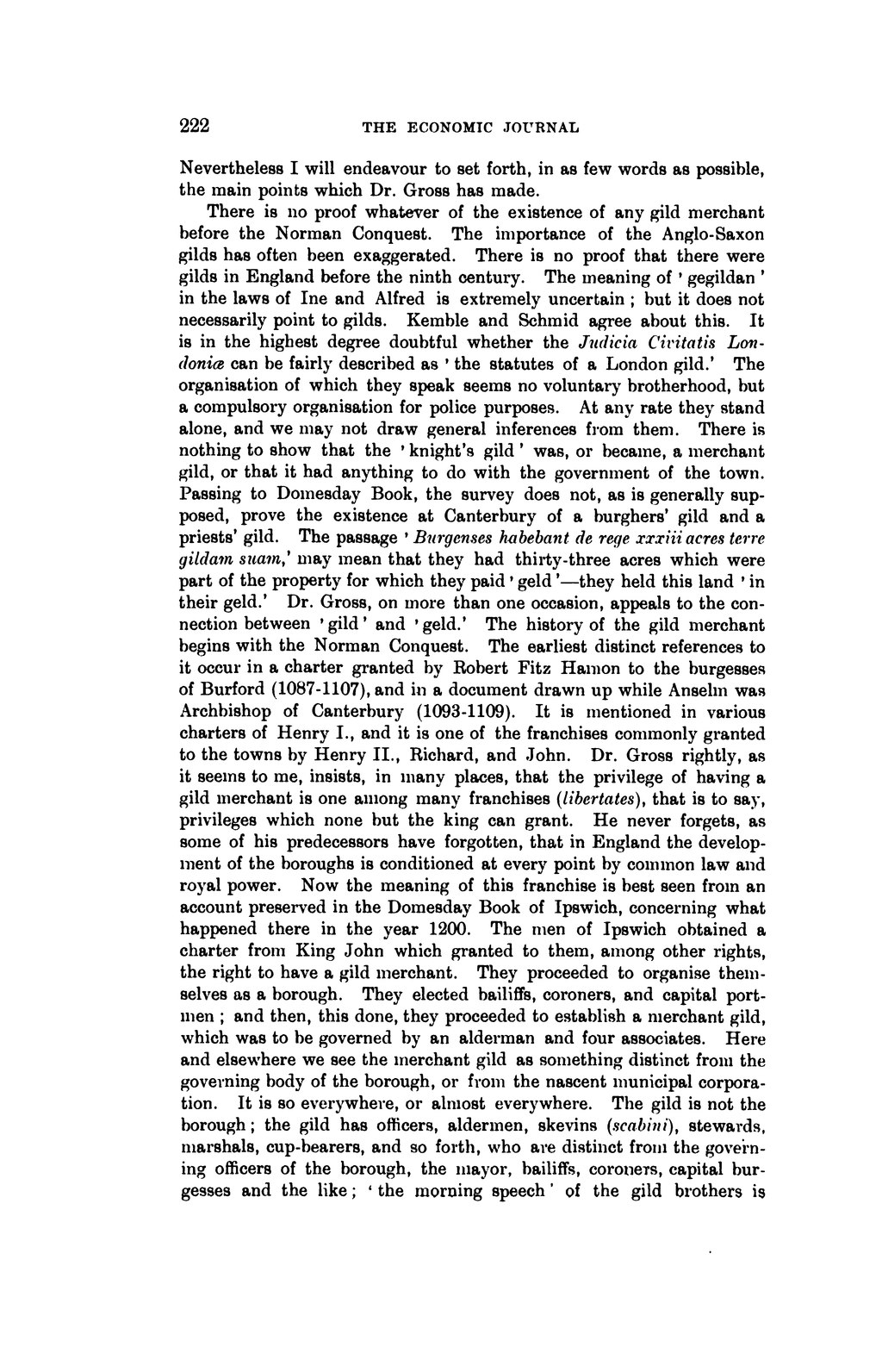Nevertheless I will endeavour to set forth, in as few words as possible, the main points which Dr. Gross has made.
There is no proof whatever of the existence of any gild merchant before the Norman Conquest. The importance of the Anglo-Saxon gilds has often been exaggerated. There is no proof that there were gilds in England before the ninth century. The meaning of 'gegildan' in the laws of Ine and Alfred is extremely uncertain; but it does not necessarily point to gilds. Kemble and Schmid agree about this. It is in the highest degree doubtful whether the Jdicia Civitatis Londonie can be fairly described as 'the statutes of a London gild.' The organisation of which they speak seems no voluntary brotherhood, but a compulsory organisation for police purposes. At any rate they stand alone, and we may not draw general inferences from them. There is nothing to show that the 'knight's gild' was, or became, a merchant gild, or that it had anything to do with the government of the town. Passing to Domesday Book, the survey does not, as is generally supposed, prove the existence at Canterbury of a burghers' gild and a priests' gild. The passage ' Brlenses habebat de re!e xxxii acres terre lildan suan,' may mean that they had thirty-three acres which were part of the property for which they paid' geld' they held this land ' in their geld.' Dr. Gross, on more than one occasion, appeals to the connection between 'gild' and 'geld.' The history of the gild merchant begins with the Norman Conquest. The earliest distinct references to it occur in a charter granted by Robert Fitz Hainon to the burgesses of Burford (1087-1107), and in a document drawn up while Ansehn was Archbishop of Canterbury (1093-1109). It is mentioned in various charters of Henry I., and it is one of the franchises commonly granted to the towns by Henry II., Richard, and John. Dr. Gross rightly, as it seems to me, insists, in nany places, that the privilege of having a gild merchant is one among many franchises (libertates), that is to say, privileges which none but the king can grant. He never forgets, as some of his predecessors have forgotten, that in England the development of the boroughs is conditioned at every point by common law and royal power. Now the meaning of this franchise is best seen from an account preserved in the Domesday Book of Ipswich, concerning what happened there in the year 1200. The men of Ipswich obtained a charter from King John which granted to them, among other rights, the right to have a gild merchant. They proceeded to organise thenselves as a borough. They elected bailiffs, coroners, and capital portmen; and then, this done, they proceeded to establish a merchant gild, which was to be governed by an alderman and four associates. Here and elsewhere we see the merchant gild as something distinct from the governing body of the borough, or from the nascent municipal corporation. It is so everywhere, or almost everywhere. The gild is not the borough; the gild has officers, aldermen, skevins (scabi, i), stewards, marshals, cup-bearers, and so forth, who are distinct from the goveVning officers of the borough, the mayor, bailiffs, corones, capital burgesses and the like; ' the morning speech' of the gild brothers is
